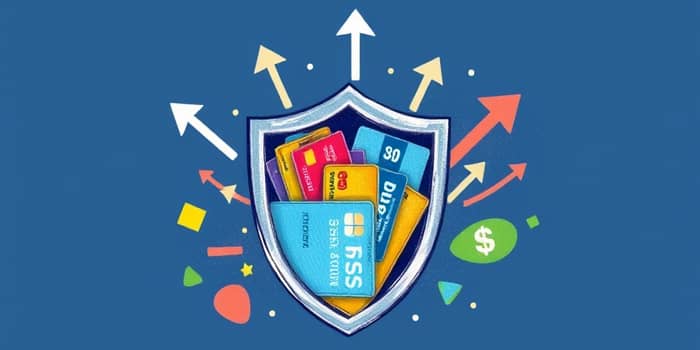
Are you struggling with a low credit score or no credit history? Secured credit cards can be the key to unlocking financial freedom. This guide reviews top options, explains essential features, and provides practical tips to help you rebuild your credit responsibly.
A secured credit card is specifically designed for individuals with bad credit or no credit history. It requires a refundable security deposit—often around $200—that sets your credit limit and serves as collateral.
Approval odds for secured cards are significantly higher than for unsecured cards; applicants with poor credit are 46% more likely to be approved for a secured card. Your deposit is held until you close the account in good standing or upgrade to an unsecured card.
Secured cards are not just stopgaps; they offer genuine pathways to better credit. By using them wisely, you can:
Most issuers report payment activity to all three bureaus, ensuring your positive habits are reflected on your credit report.
When selecting a secured card, evaluate the following factors to find the best match for your needs:
Deposit requirement: Ranges from as low as $49 (Capital One Platinum Secured) to $300 or more (BankAmericard® Secured).
Annual fees: Many cards charge no annual fee, but some may assess fees up to $49 per year.
APR: Secured cards often carry higher interest rates, from around 14.24% (First Progress Platinum Prestige) up to nearly 30% (Capital One).
Rewards: Discover it® Secured offers 2% cash back on gas and restaurants (up to $1,000 per quarter) and 1% elsewhere, plus a first-year match.
Upgrade pathway: Several issuers, including Capital One and Discover, review accounts after 7–8 months of responsible use for potential upgrades to unsecured cards, returning your deposit.
Below is a summary of the leading secured credit cards for applicants with bad or limited credit:
Each card caters to different priorities, whether it’s rewards, minimal upfront costs, or high limits.
Some issuers provide creative solutions. For instance, the Yendo Credit Card uses your vehicle as collateral instead of cash. While this frees up liquidity for cardholders, it also carries the risk of repossession if payments are missed.
Ensure you fully understand the terms before leveraging alternative assets.
Every journey to good credit is personal. Many cardholders report credit score improvements up to 120 points within a year by making consistent payments and keeping balances low.
Testimonials often highlight tools like Capital One’s CreditWise or free annual reports as valuable credit monitoring resources. Their experiences demonstrate that disciplined use can transform financial health.
Implementing these practices turns a secured card into a powerful credit-building engine.
Based on expert rankings and user feedback, the top choices this year include:
These selections balance features like rewards, fees, and upgrade pathways to match diverse needs.
Opening a secured card account is straightforward. Choose a card that aligns with your budget and goals, submit your refundable security deposit, and begin using the line of credit wisely.
Keep an eye on potential upgrade offers after 7–12 months of responsible use. When approved, you can upgrade to an unsecured card and have your deposit refunded, marking a major milestone in your credit journey.
Secured credit cards provide a reliable pathway to rebuild or establish credit. By understanding key features, comparing top options, and following disciplined strategies, anyone with bad credit can secure a brighter financial future.
Remember: consistency, timely payments, and informed choices are the cornerstones of upward credit momentum. Start today and watch your score rise.
References













